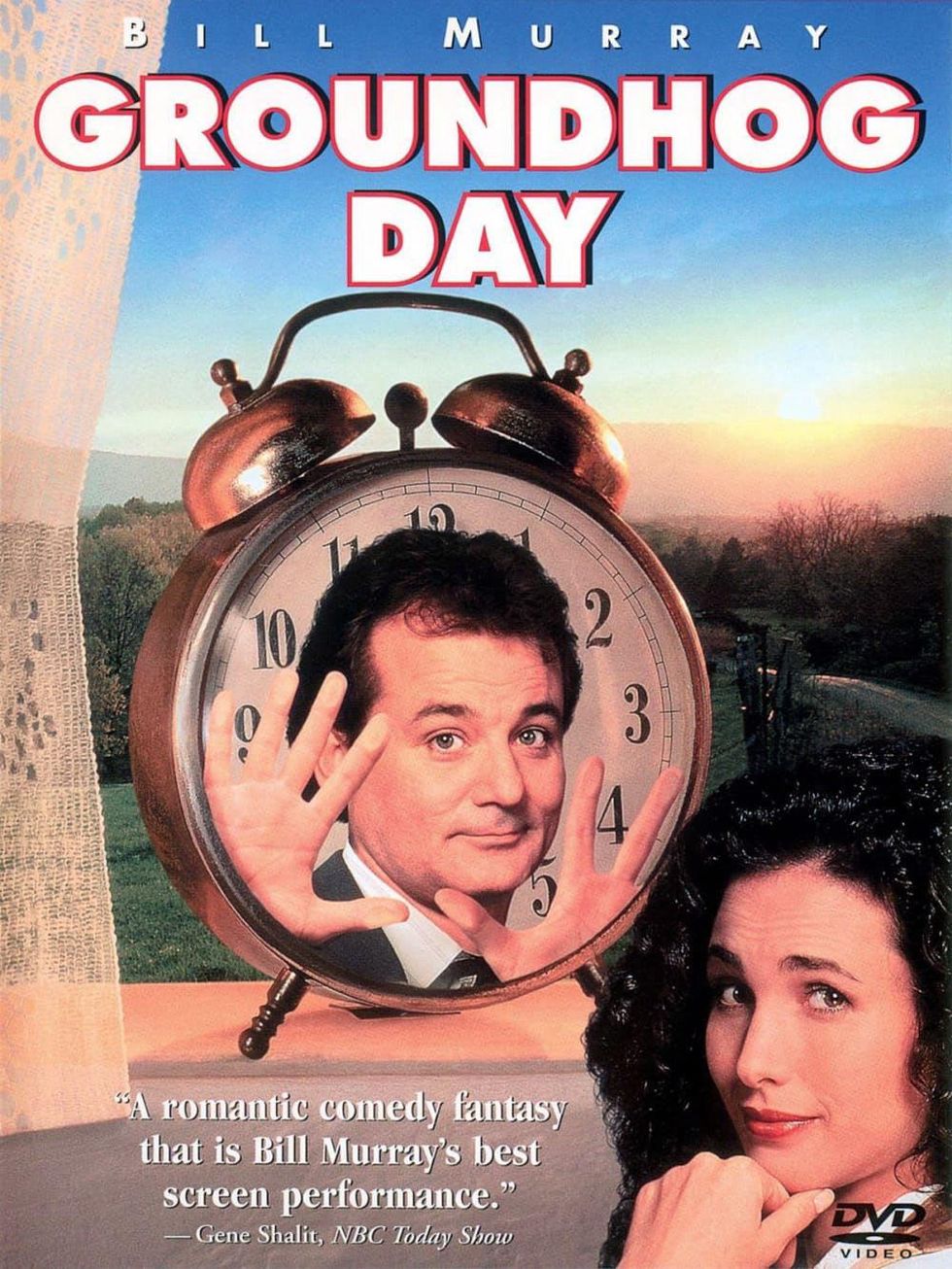Tuesday is Groundhog Day, one of the quirkier celebrations in American culture. There is absolutely nothing normal about this event.
For starters, we gauge our seasonal forecast on whether or not a rotund rodent will see his shadow.
The groundhog, or the “seer of seers,” apparently then drinks a magic elixir that extends its life.
And its name is Phil.
Maybe the only thing wackier than the groundhog’s purported penchant for prognostication was the recent plan by People for the Ethnical Treatment of Animals (PETA) to create an animatronic version of Punxsutawney Phil. Turns out meteorology is a stressful occupation for hibernating creatures.
Groundhog Day celebration always brings to mind the enjoyable 1993 movie of the same name. It’s the one where Bill Murray plays that curmudgeon weatherman who is stuck living an endless loop of grim days in the sleepy Pennsylvania town of Punxsutawney.
Day after day he wakes up, and every day it is all just the same.
I feel like I’m living a Groundhog Day of my own when it comes to partisan politics.
Last January, President Barack Obama promised in his inaugural address “an end to the petty grievances and false promises, the recriminations and worn-out dogmas, that for far too long have strangled our politics.”
Yet one year later, and right after Obama’s prime time recognition that Americans were “tired of the partisanship and the shouting and the pettiness,” there was some of the usual partisanship and pettiness.
A recent Gallup Poll measuring Americans’ hopes for a bipartisan agenda found that there was “a great deal of optimism about bipartisanship” at the time of Obama’s inauguration speech. Unfortunately, the poll documented how that “optimism…diminished greatly several months into the current session of Congress.
We’ve seen this play out before.
In December 2000, when then President-elect George W. Bush declared, "I am optimistic that we can change the tone of Washington, D.C.," Americans shared his hope. Bush wished the country would be able to move “beyond the bitterness and partisanship of the recent past."
Didn’t exactly work out that way, did it?
And when Bill Clinton indicated to Americans in his inaugural in 1993 his resolve “to reform our politics,” well, you get the picture.
Partisan politics is a mainstay in American political history. And although we wake up each day to another cold blast of partisanship, there might be some comfort in the notion that at least some of the partisan vitriol has been tempered over time.
Old School Partisan Politics
No sooner was our republic formed than partisan passions boiled all over George Washington’s cabinet. The differences of opinion between Alexander Hamilton and Thomas Jefferson set the stage for not only our two-party system, but also some rather bruising political fights during the 1790s.
Some of the most spiteful charges came between the rival camps of John Adams and Thomas Jefferson. These two, who served as president and vice president, respectively, from 1796 to 1800, had a bit of a falling out by the time the 1800 election rolled around.
One newspaper from Connecticut warned that in the event of a Jefferson election, "Murder, robbery, rape, adultery and incest will be openly taught and practiced.” And if that didn’t get you to think about voting for John Adams, it predicted that if Jefferson won, “The air will be rent with the cries of the distressed, the soil will be soaked with blood, and the nation black with crimes."
That’s change you could believe in.
Jefferson won though, and appeared to take somewhat of a conciliatory tone in his 1801 inaugural declaring, "We are all Republicans, we are all Federalists." But by then, partisanship was in full bloom.
Some Other Partisan “Lowlights”
• During the 1820s, Andrew Jackson accused his opponent, John Quincy Adams, of procuring American women to satiate the desires of the Russian czar. In return, the Adams camp labeled Jackson’s wife, Rachel, the "American Jezebel." (The charges were based on the cloudy circumstances around Rachel Jackson's divorce from her first husband). Rachel Jackson died of perhaps a heart attack soon after the election of 1828. Jackson claimed that it was the accusations that actually killed his wife. You just can’t make this stuff up.
• In 1856, the anti-slavery Massachusetts senator Charles Sumner described in a speech to the Senate how his Senate colleague Andrew Butler took "a mistress who, though ugly to others, is always lovely to him; though polluted in the sight of the world, is chaste in his sight—I mean, the harlot, Slavery." Three days later, South Carolina Rep. Preston Brooks, who was Butler’s nephew, proceeded to beat the tar out of Sumner with a cane on the floor of the Senate. While it took three years for Sumner to make it back to the Senate, Brooks, on the other hand was censured, resigned and then quickly re-elected. And my favorite part of the story: Brooks received commemorative canes with the inscription “Hit him again” as a show of support.
• In 1884 Republicans chanted “Ma, ma, where’s my pa?” to bring attention to some questions about Democratic candidate for President Grover Cleveland's possibly having an illegitimate child. When Cleveland won, however, Democrats responded to the Republican chant with “Off to Washington, ha ha ha.”
Thus, it appears that George Washington’s warning “against the baneful effects of the spirit of party generally” in his Farewell Address was quite prescient.
And whether you agree with Obama’s policies or not, he seemed to hit the nail on the head last week when characterizing the somewhat jaundiced history of political discourse in our country.
“Democracy in a nation of 300 million people can be noisy and messy and complicated,” Obama surmised. “And when you try to do big things and make big changes, it stirs passions and controversy. That's just how it is.”
So no matter what that groundhog predicted this past week, I forecast partisan divisions for the near future. That’s just how it is.

